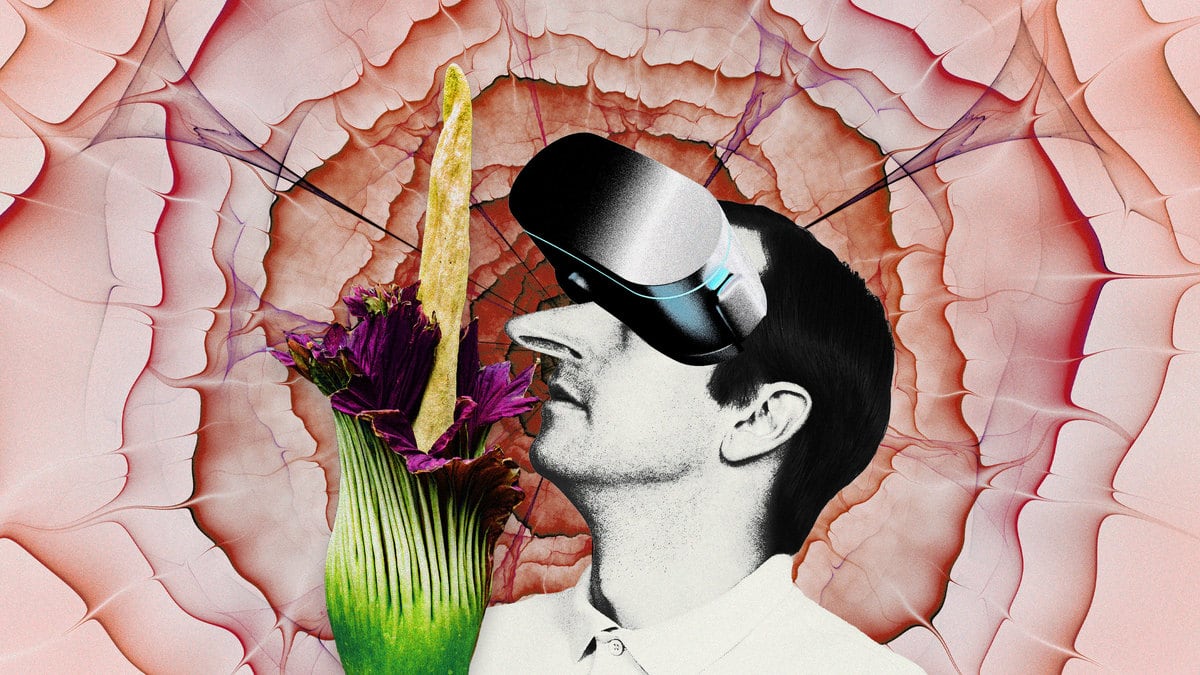Despite the surge of buzz over the metaverse in the last few years, virtual reality has yet to really pierce the market as a mainstay consumer tech product. There are a myriad of reasons why—some of which can be overcome, and some of which can’t. But one incentive that techies hope will draw more people into VR applications is to go beyond simply delivering new visual and auditory sensations, and enhancing the whole thing by introducing smells to the VR experience.

The first is a wearable that attaches to the upper lip underneath the nose that can create two different kinds of scents, while the other is a mask that can generate nine.
Xinge YuSome researchers think they have invented the perfect device to make this happen—or rather, two of them. In a new paper published Tuesday in Nature Communications, Chinese researchers demonstrate a pair of wireless platforms designed to generate odors for use in VR experiences. The first is a wearable that attaches to the upper lip underneath the nose that can create two different kinds of scents, while the other is a mask that can generate nine. They both use a scented wax that is heated up in just over a second that can release realtime scents in a small area around the user.
Customizability between the premade scents allowed the authors to create a selection of 30 different odors using the smell platform. They include pineapple, ethanol, rosemary, grape, mint, rice, cream, gardenia, mojito, watermelon, vanilla, coffee, candy, ginger, green tea, coconut milk, peach, orange, milk, lemon, strawberry, lavender, clove, caramel, pancake—and most egregiously, durian fruit.
Admittedly, the platform’s array of smells is limited, and the practical applications aren’t exactly intuitive. Is it necessary that we’re able to pick up the scent of your breakfast on The Sims? Do you need to smell Arthur Morgan’s coffee on Red Dead Redemption? Will your nose somehow pick up on the transphobic undertones of Hogwarts Legacy?

VR scents include pineapple, ethanol, rosemary, grape, mint, rice, cream, gardenia, mojito, watermelon, vanilla, coffee, candy, ginger, green tea, coconut milk, peach, orange, milk, lemon, strawberry, lavender, clove, caramel, pancake—and most egregiously, durian fruit.
Xinge YuBut there are some hopes that the addition of smells in VR could make it easier to immerse users in applications where they are learning some kind of new skill or being introduced to a new culture or community through a VR experience. And given how powerful scent is in the way humans interact with the world, the addition of this sense in VR could go a long ways toward helping people feel more comfortable with treating VR like a more serious tool rather than a gimmick.






